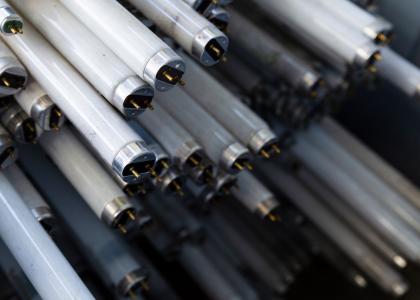As the coldest months of the year approach, New Hampshire has taken a worrisome step backward that will make it harder for residents to save energy. In a radical departure from the state’s prior progress, its Public Utilities Commission issued an order late Friday that slashes funding for utility energy efficiency programs. The order would cut their budgets nearly in half by 2023, compared to 2020 levels—depriving New Hampshire residents and businesses of much-needed help in reducing their utility bills as natural gas and electricity prices rise.
Today many New Hampshire residents can receive rebates for upgrading to more efficient home heating systems, financing for home weatherization, and other incentives. But those programs will now likely be cut back.
Given recent headlines about rising energy prices, and coming on the heels of further news about the urgency of the climate crisis from the COP 26 summit in Glasgow, this move is out of step with the rising focus on the importance of energy efficiency.
Moreover, what makes this move particularly unusual and disappointing is that the Commission had before it a proposed settlement agreement that actually significantly increased utility energy efficiency funding from present levels. As I mentioned in a blog post in January, that settlement plan was supported by every formal party to the case, including all the state’s utilities (Eversource, Liberty, Unitil, and the New Hampshire Electric Cooperative), the state residential ratepayer advocate, and a number of nonprofit organizations.
Testimony in that case indicated that the expanded efficiency programs in that settlement would have created 17,500 job-years and produced $3.5 billion in increased economic output in New Hampshire. Although not a party to the case, the Business and Industry Association (BIA) filed a comment letter opposing the proposed increase in funding and calling for funding to stay at current levels. But the Commission ultimately went much farther than that.
Rather than approving the consensus settlement, or even freezing funding at current levels, the Commission chose on its own initiative to completely reverse course and dramatically scale back utility efficiency funding. In its order, the Commission reached way back to invoke a 1998 order that called for the development of “market based, not utility-sponsored and ratepayer-funded, energy efficiency programs.” (The New Hampshire Consumer Advocate has noted that this current order flies in the face of numerous orders and legislation subsequent to that 1998 decision and may be highly vulnerable on appeal.)
That phrasing sounds similar to the “let the market do it” rhetoric that was common in the utility deregulation era of the late 1990s. That was a concept we pretty thoroughly debunked in a study featuring extensive interviews with market participants , described in an ACEEE report in 2001 (Can We Just "Rely on the Market" to Provide Energy Efficiency?). Subsequent ACEEE research has followed the experience in numerous states in the past two decades and has abundantly demonstrated the success and importance of state policies requiring energy efficiency resource standards for utilities.
Another factor that state policymakers and regulators might want to consider as they weigh this issue is that New Hampshire has to import 100% of the natural gas, coal, and petroleum products that it consumes, which leads to a drain from the state of nearly $4 billion per year. Energy efficiency can help retain some of those dollars in the local economy.
The order is chock full of other destructive elements for utility energy efficiency. For instance, it eliminates the existing practice of providing performance incentives for utilities for energy efficiency achievements. More details about the order, including some procedural history and a lengthy list of specific elements of concern, can be found in a letter from the New Hampshire Consumer Advocate to his advisory board.
It would be a significant benefit to New Hampshire residents and businesses if regulators would rethink this policy reversal and get back on the track of increasing energy efficiency efforts in the state—which would help customers combat rising energy costs, boost the state’s economy, and reduce carbon emissions in the region.



